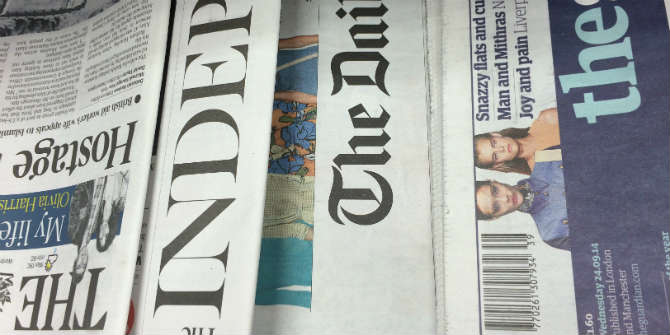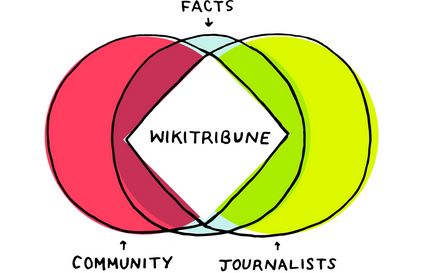 Robert G. Picard is Director of Research at the Reuters Institute for the Study of Journalism, University of Oxford, a research fellow at Green Templeton College (Oxford), and a Fellow of the Royal Society of Arts. He explains the results of the pilot implementation in the UK of the European Union’s Media Pluralism Monitor.
Robert G. Picard is Director of Research at the Reuters Institute for the Study of Journalism, University of Oxford, a research fellow at Green Templeton College (Oxford), and a Fellow of the Royal Society of Arts. He explains the results of the pilot implementation in the UK of the European Union’s Media Pluralism Monitor.
The UK scores relatively well overall in terms of media pluralism policy and developments, but exhibits significant risk factors worthy of attention, according to a pilot implementation of the EU’s Media Pluralism Monitor.
The monitor is a risk-based assessment tool developed for the European Commission in response to concerns by the European Parliament and Council of the European Union about media pluralism in member states and across Europe. It was created in 2008-2009 and then revised for pilot implementation in 8 countries this year.
The Media Pluralism Monitor assesses risk using 34 major policy/legal, economic, and socio-political indicators, including 241 sub-indicators applying indicators to various media, assessing the implementation of regulatory provisions, and delving deeply into elements related to the main indicator. It then scores risks as low, medium, or high. The method does not determine whether pluralism exists or the extent to which it exists. Risk-based analysis identifies areas on which policymakers should focus attention, consider mitigating factors, and determine whether policy action is warranted.
The UK scored low risks on the majority of indicators, but with concerns raised by 38% of the indicators.
The study found the United Kingdom has a well-developed legal and regulatory system related to media and media pluralism, is governed by the rule of law and independent judicial oversight, and generally exhibits effective implementation and processes. The United Kingdom protects freedom of expression, affords information access, provides for independent media and competition regulatory authorities, maintains specific media pluralism and competition policies, regulates cross-ownership involving operators of broadcast channels, and requires political impartiality in broadcasting.
The Monitor’s assessment of policy/legal risk indicators, however, showed medium risks involving policies related to public service media governing bodies, net neutrality, protection of journalism, and high risks involving policies for access to public service media by cultural and social groups, for local public service media provision, and for ownership/control of media by politicians.
The Monitor identified high economic risks to media pluralism because of high concentration in media sector ownership and audiences served, and high cross-media concentration. Medium risks were revealed because of limited minority and community media and the current nationwide availability and quality of broadband services.
The study revealed few significant risks to media pluralism related to socio-political factors in the UK, but found it exhibits moderate risk resulting from political bias in media and potential political control of media advertising funding.
The medium and high risks identified need to be considered in terms of the underlying pluralism concerns the indicators address and whether mitigating factors or actions, such as extant policy or regulation, are already in place to address the risks or changes are underway that will ameliorate the concerns. The Monitor merely identifies issues for consideration and does not assert specific solutions to the concerns raised by the assessment.
The most surprising results were the lack of clear policies regarding provision of voice to minority cultural and social groups and distribution of government advertising. Probably the most important of the issues identified involves public service media governance.
Media pluralism is an objective in democratic society to ensure citizen access to a variety of information sources, opinions, and voices and to reduce undue influence of dominant opinion, government, or individuals in forming public views. There are no singular methods or policies for pursuing pluralism because they must be adapted for domestic conditions, culture, history, and political systems, but media pluralism can be pursued through competition, industrial, cultural, media, and electoral policies.
The pilot test of the Media Pluralism Monitor showed it can be effectively implemented and that domestic discussion of the results are need to determine whether action is appropriate.
The UK review was conducted by the Reuters Institute for the Study of Journalism, University Oxford, as part of the pilot implementation coordinated by the Centre for Media Pluralism and Media Freedom, European University Institute in Florence, Italy.
More information about the UK performance can be found in the executive summary of the study.
This post gives the views of the author, and does not represent the position of the LSE Media Policy Project blog, nor of the London School of Economics.





